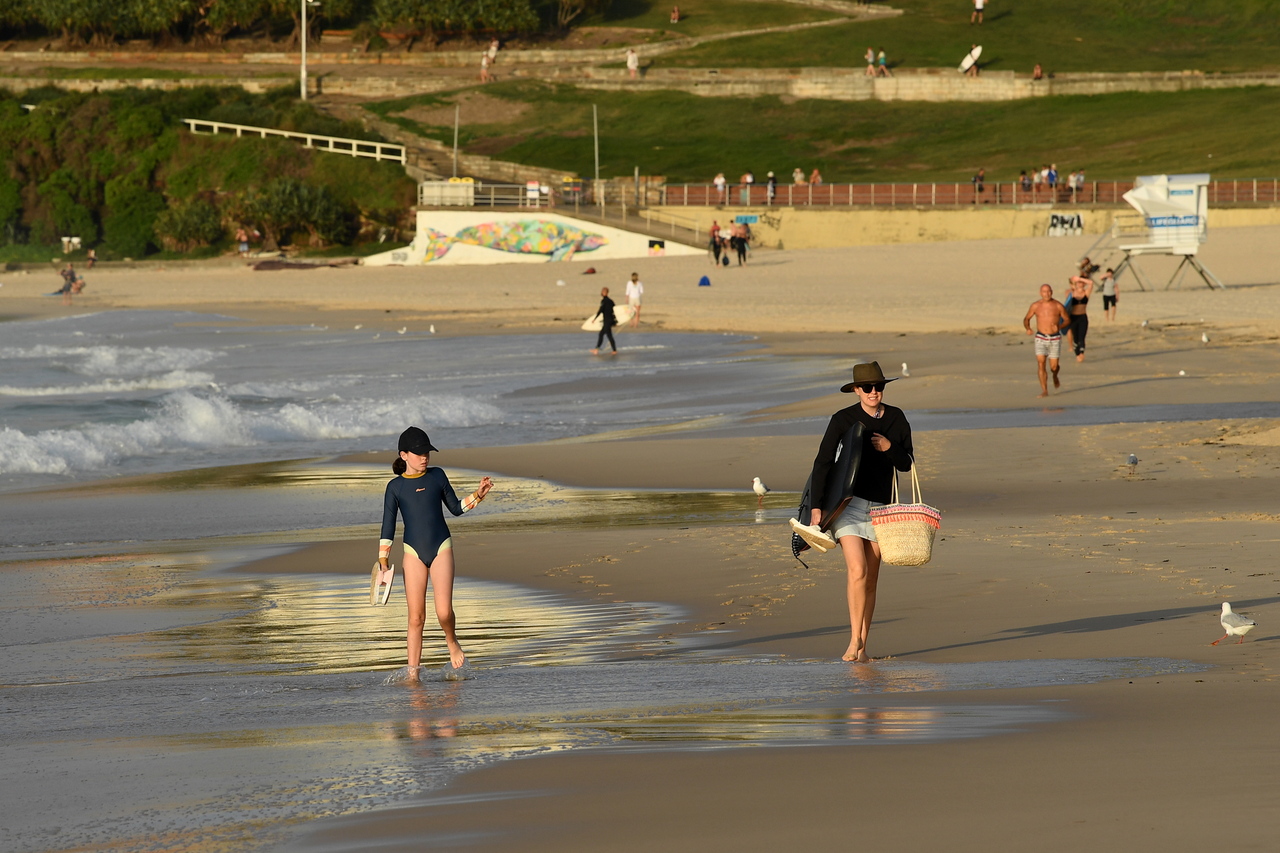Coronavirus: As Australians flock to beach, critics blame govt's mixed messages
Sign up now: Get insights on Asia's fast-moving developments

Beachgoers are seen at sunrise at Bondi Beach in Sydney, Australia, on March 22, 2020.
PHOTO: EPA-EFE
Australians have been flagrantly ignoring the federal government's orders to limit social activities, as seen by the massive crowds who turned up at beaches and packed into cafes and bars at the weekend.
But critics say the problem has been the mixed messages from the government - and a lack of clear, accurate information which will help to boost understanding and instil an element of fear about the consequences of inaction.
As of yesterday, Australia had more than 1,700 confirmed cases of Covid-19. Seven people have died. Travellers from overseas have been banned, aside from returning citizens, residents and their families.
But images of a packed Bondi beach last Friday circulated around the world and led to much censuring in Australia of the apparently selfish decision by the beachgoers.
Public health specialist Bill Bowtell, an adjunct professor at the University of New South Wales, said he blamed the public's lack of urgency on the government's poor communication.
"The responsibility for the lack of effective, or any, communication rests with the Prime Minister, his advisers and the governments of Australia," he wrote on Twitter yesterday. "Do not blame the people for not getting the memo. It has to change immediately."
A little over a week ago, for instance, Prime Minister Scott Morrison was still attempting to present breezy assurances that life would not be excessively affected by the pandemic. He insisted he would attend a rugby league game due to be played hours before the ban on outdoor gatherings started, though he quickly changed his mind.
The inconsistency of the public message became most noticeable on Sunday, when Mr Morrison announced the nationwide closure of cinemas and other large venues, but said schools could remain open.
Yet, the two most populous states, New South Wales and Victoria, yesterday morning defied this advice and announced school closures.
The result has been a series of conflicting messages that have confused the public about the severity of Covid-19 and about how to stay safe.
Meanwhile, New Zealand said yesterday it will move to its highest alert level, imposing self-isolation, with all non-essential services, schools and offices to be shut over the next 48 hours as the number of coronavirus cases more than doubled.


